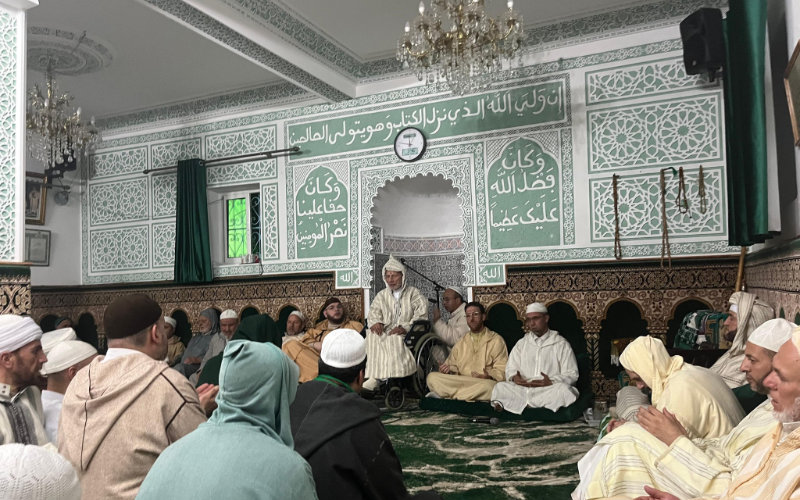Sufi Mosque Wedding Sparks Outrage in Tangier: Tradition Clashes with Modernity

The Ajibiya zawiya of Tangier explains the controversy surrounding a wedding organized in one of its mosques, located in the Aouama district.
Videos dated June 15 show the organization of a wedding in the hall of a mosque belonging to the zawiya, in the Aouama region, on the outskirts of Tangier, with musical entertainment, singing, dancing and applause. This has sparked a lively controversy in the city.
Faced with the controversy, the Ajibiya zawiya of Tangier, in a statement, explained that this act was committed by a group of "dissidents who have strayed from the right path", who, without the authorization of the sheikh of the zawiya or its officials, transformed a spiritual space into a place of singing and applause. For the zawiya, this act is a distortion of its image and its history dating back to its founder, Ahmed Ben Ajibia. It denounces a "flagrant violation of the sanctity of the place".
What happened "has no connection with the spirit of Sufism nor with the values of decency and renunciation", it continued, calling not to attribute to it the responsibility for these behaviors which it considers foreign to its educational and spiritual path. The zawiya also reiterated its commitment to defending the sanctity of its mission and its place in Tangier and national society. It also called for respect for the sanctity of places of devotion and the preservation of their status from any abuse or exploitation.
A page affiliated with the Ajibiya-Darqawiya path does not share the opinion of the Ajibiya zawiya of Tangier. According to it, sharia does not prohibit musical entertainment in the context of a wedding. To support its argument, it cites a hadith that authorizes the announcement of the wedding in mosques and the use of the tambourine. "It also mentioned the episode of the Abyssinians playing the spear in the mosque of the Prophet, without him forbidding them, going so far as to approve of their behavior when Omar tried to prevent them, which it considers as proof of the legality of such practices in places of worship, when they are related to a lawful rejoicing like the wedding," it is reported.
Related Articles
-

Rabat’s Urban Transport Revolution: 120 High-Tech Buses to Transform City Commutes
30 August 2025
-

Miracle at Sea: Moroccan Diver Survives 170km Drift, Rescued Off Spanish Coast
29 August 2025
-

Deadly Night Crash: 8 Killed as Truck Collides with Taxi on Moroccan Highway
29 August 2025
-

Global Crackdown: Moroccan Travelers Face Mounting Restrictions Amid Immigration Concerns
29 August 2025
-

EU Banking Reforms Threaten Billion-Dollar Remittances to Morocco, Sparking Financial Sector Shake-up
29 August 2025